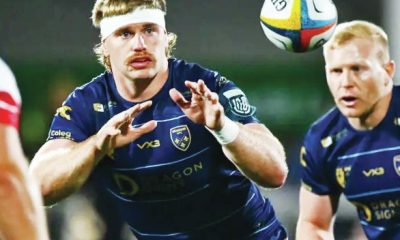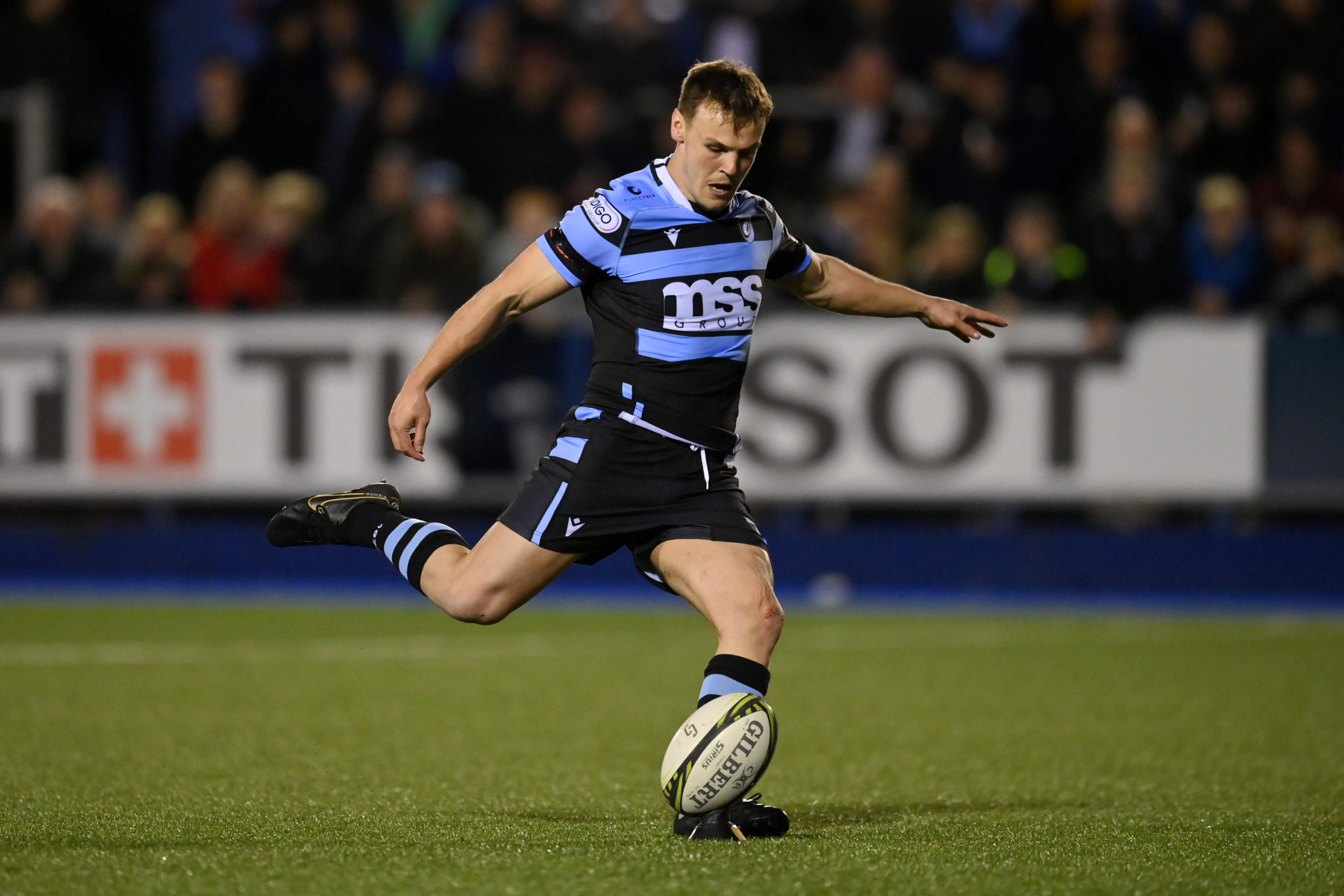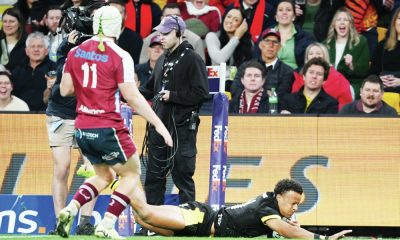
gigantic trophy awaiting collection in all its gleaming glory on that first Sunday of 1996, Cardiff defied the odds and stretched the inaugural final against Toulouse at the Arms Park into extra-time before succumbing to the latest of penalties.
The incomparable Ring could only sit and watch, his role of principal play-maker reduced to that of spectator by a half-time substitution. Terry Holmes, his lifelong pal and former half-back partner, made the call as head coach to replace Ring with Jonathan Davies, then newly restored to the Union after earning his stripes in League.
“It still rankles with me, to be honest,” Ring says, almost 18 years after the event. “Terry is a great friend. I respect him as a player, coach and a person so I never made a big thing of it.
“He said my legs had gone. I knew that wasn’t the case. Toulouse completely bamboozled us in the first 20 minutes with their running lines.
“Christophe Deylaud held the ball a split-second longer than I’d seen any outside-half hold it before. The little fella kept winking at me and giggling. I almost felt like giggling back at him because he played with the sort of cheek I love.
“Another little fella, Thomas Castaignede, would go on an early loop, then he’d stop and cut a line between Adrian Davies (No. 10) and me at inside centre.
“My personal view was that Jonathan should have played at fly-half. He and I could have won that game because our forwards won a lot of ball. Instead Jonathan played at inside centre, a position he had never played before.
“Toulouse are no different to any French team in that if you gain their respect, they become more cautious in the way they attack. We’d gained their respect well before extra-time and that took some doing because Toulouse that day left such an impression that I based my whole coaching philosophy around their running lines.”
A generation has come and gone since that first final and still no Welsh team has got as remotely close to conquering Europe as Cardiff that day, even if Europe then consisted of no more than five countries.
While the suspicious English and Scottish Unions found the idea far too radical to let their teams take part without a painstaking examination of what they were letting themselves in for, it went ahead with only the French, Welsh and Irish plus a couple of Italian clubs and one from Romania.
At no stage since then has a Welsh team got as far as the final. None of them made the quarter-finals last season which, if nothing else, will have removed any burden of expectation.
While the Scarlets are condemned to the definitive Pool of Death alongside Clermont, Racing Metro and Harlequins, their first opponents at The Stoop on Saturday, at least one Welsh region will relish their prospects of reaching the knock-out stage.
Ospreys kick off against Leinster at the Liberty Stadium on Saturday. Given the fact that Leinster had to settle for a 29-29 home draw in the Pro 12 last month, the triple former European champions have ample cause to view the Swansea trip with some apprehension, despite Ospreys’ 18-12 home loss to Ulster on Friday.
Are the Welsh birds of prey serious contenders? “Why not?” says Ring. “They’ve got the bulk of the Welsh team that won the Six Nations and several of those were in the winning Lions Test team. Their confidence must be sky-high.
“Leinster, under a new coach, are rebuilding although they have the blocks in place. But I don’t see them dominating the tournament the way they have in recent seasons.”
Ring, who splits his time as attack coach between Cardiff’s Welsh Premier Division club team and the Blues’ Pro 12 squad, also sees his native club-cum-region getting out of their pool starting at Exeter next Sunday.
“Exeter won’t exactly blind us with science and Leigh Halfpenny will keep chipping away at the scoreboard,” he says. “Maybe they’re not nailed-on for the quarter-finals but I wouldn’t write the Blues off.”
If only they had someone like Ring in his pomp, a fly-half who saw things others could never dream of and made them happen. He really ought to have been up there with the greatest and probably would have been but for some cruel injuries and at least one national coach who never appreciated him – but that’s another story.






















You must be logged in to post a comment Login